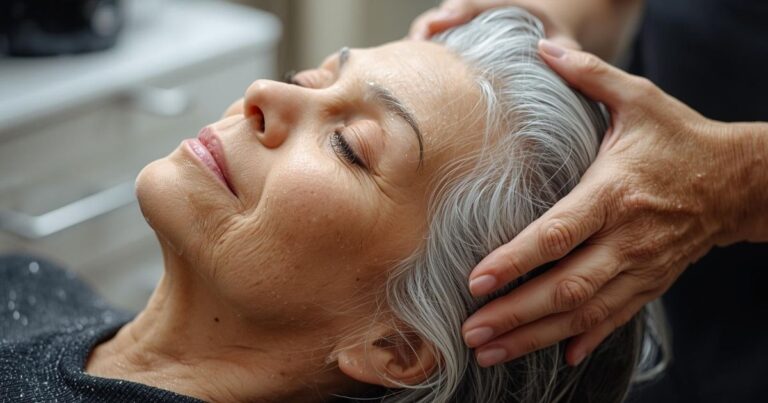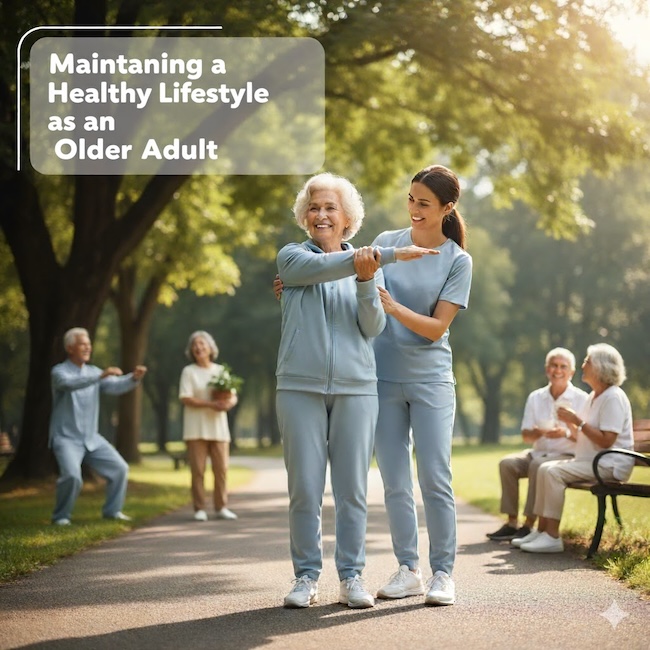Mental well-being is the vibrant thread that weaves through every aspect of an aging adult's life. It influences their physical health, their desire to connect, and their overall joy in daily living. Yet this critical element of wellness is often overlooked amid the routine of managing medications and doctors' appointments.
Nurturing a positive state of mind isn't a luxury; it's a foundational pillar of healthy aging. Let's explore meaningful, actionable ways to lift spirits, engage the mind, and cultivate resilience, ensuring your loved one's emotional health receives the thoughtful attention it deserves.

Significant changes that often happen later in life can increase the chances that an older person will be affected by depression or mental health issues. To help older adults maintain their health and well-being, FirstLight Home Care shares three ways to boost their mental health.
Helping an older loved one stay mentally happy and healthy can sometimes be a challenge.
Depression and mood disorders are often associated with aging, but this doesn’t mean an older loved one is bound to develop mental health issues – especially if they engage in activities that help keep their spirits high and their mind strong.
Usually, having something to look forward to gives an older person a reason to get up and/or get out of the house.
It could be lunch with a child or family member, catching up with friends, attending a wedding, or entertaining an out-of-town visitor.
To avoid upsetting or putting an aging loved one on the defensive, don’t present these activities as mental health exercises; offer them as fun ways to connect with family, friends, and nature.
Here are three great ways to boost an older loved one’s mental health.
How to Boost the Mental Health of Aging Adults
1. Taking a Nature Break
According to the American Psychological Association, research is helping us understand how being in nature can improve mental health and sharpen cognition.
Many studies show that being in nature, or even looking at images of nature, reduces stress and helps memory and mood.
Ways to enjoy nature with an older loved one can include short walks at a local park, a visit to a local arboretum or botanical garden, or even just sitting on a bench or chair outside on a nice day.
While being outdoors is the simplest way to enjoy nature, it’s not always possible due to extreme heat or cold, or if someone has minimal mobility.
In these cases, explore other ways to enjoy nature from inside their home.
For example, bring in plants or flowers that are easy to care for, place bird feeders outside a window, or get a table-top terrarium that requires minimal care.
2. Playing Word Games or Working on Simple Puzzles
If your loved one enjoys playing games like Scrabble, working on crossword puzzles, or doing jigsaw puzzles, these are great ways to have fun while boosting mental health.
To make sure they’ll be enjoyable and satisfying, choose games that match your older adult’s abilities.
For seniors with cognitive impairment, try simplified word games and specially-designed jigsaw puzzles that better suit their current abilities.
For example, you could have an ongoing jigsaw puzzle with a loved one that you both work on during visits, so they can enjoy your company and get a little mental workout.
Bingo is another popular game that you or your family can play with your older adult. It’s fun and can be played with two people or a larger group.
3. Learning a New Skill or Revisiting an Old Talent
Many older adults enjoyed art and hobbies when they were younger and may enjoy starting a new hobby that builds on their former skills.
Art classes are a great way to bring out your loved one's artistic side.
Painting, sketching, or sculpting all offer an artistic outlet and also improve hand-eye coordination, in addition to boosting mental health.
Music is another excellent way to lift spirits. Studies show that it can also improve mood and increase happiness among older adults.
Maybe your loved one is used to singing for pleasure or playing an instrument. They might enjoy picking up those hobbies again, or they might like going to a concert or watching musicals on TV.
Singing along at a musical concert is another way to bring back happy memories. Taking your loved one to musical events (or watching one together online or on TV) is another way to offer a mental health boost and enjoy each other’s company, too.
Final Thoughts on Boosting the Mental Health of Aging Adults
Prioritizing mental health is a profound and ongoing act of love that pays dividends in laughter, connection, and a renewed sense of purpose. The strategies you implement, whether fostering social bonds, encouraging gentle activity, or simply sharing quiet moments, create a ripple effect of positivity that strengthens every other aspect of their care.
By making emotional well-being a central part of their routine, you are not just adding years to their life, but life to their years. Your support helps build inner fortitude, enabling loved ones to navigate the challenges of aging with greater grace, optimism, and peace.
Recommended for you:
- 3 Top Benefits of a Daily Routine for Seniors
- 5 Ways to Improve Quality of Life for Seniors
- Music for Seniors: Improve Health, Mood, and Sleep
Guest contributor: Carol Nelson, RN, BSN, MBA, is Healthcare Solutions Manager for FirstLight Home Care. With more than 35 years of experience in Medicare and private-duty home care services, hospice and palliative care, and assisted living management, Carol has a heart for service and a dedication to the health and well-being of older adults.
This article contains some affiliate links. If you buy through an affiliate link on our site, we may earn a small commission, at no additional cost to you. For more information, see How We Make Money.
About the Author
https://caregiver.com/topics/rebecca-rushing/














How do you deal with a person that you love very much going thru dementia? It breaks my heart to see the phases that my husband at 40 years is going through. We have no children. All we have is each other.